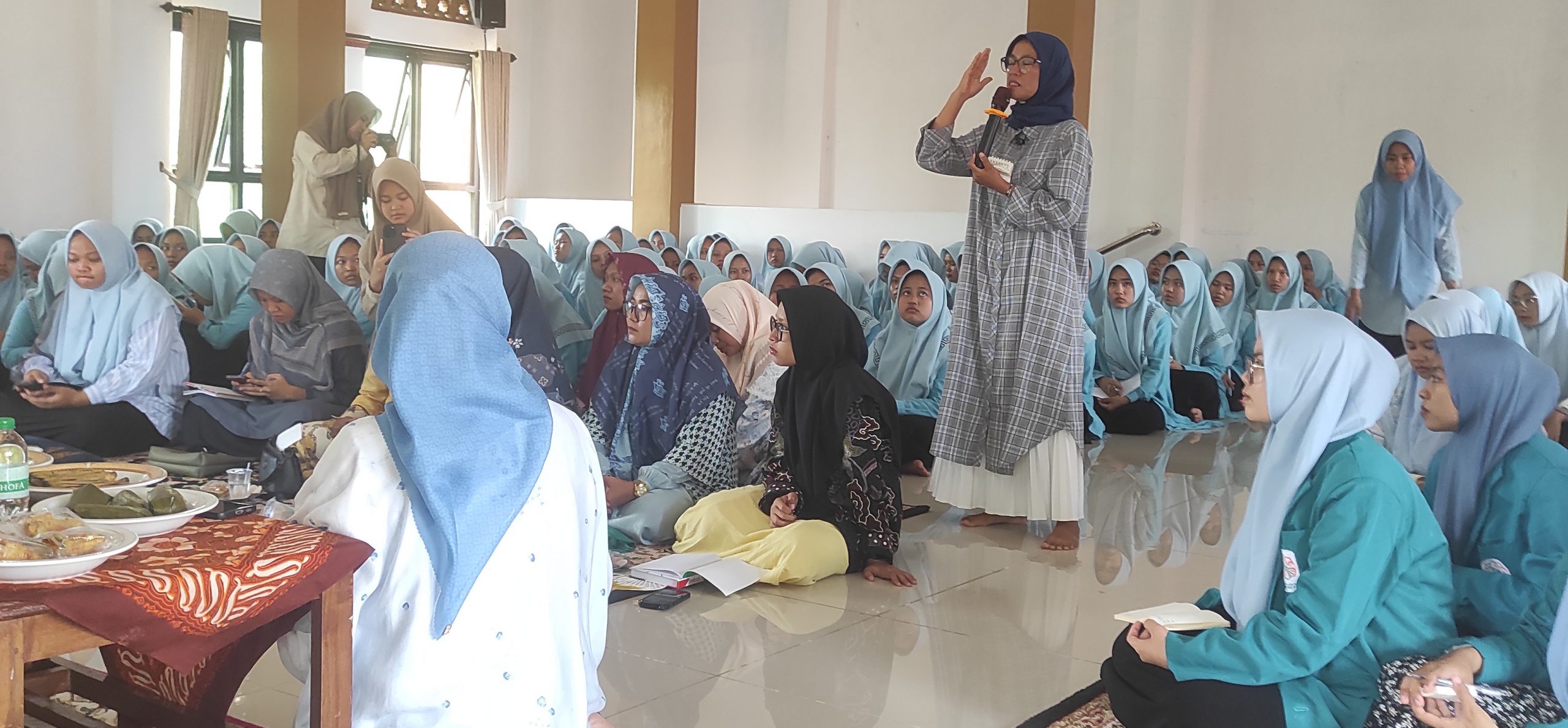Reporter: Mahirotus Shofa
Umah Ramah speaks about sexuality and reproductive health at the Seminar of Reproductive Health from a Fiqh Perspective, held on Friday, November 22, 2024, at the KHAS Kempek Islamic Boarding School in Cirebon Regency. More than 150 women from various backgrounds attended this event, including students, lecturers, and Fatayat activists.
The supervisor of the Khas Kempek Girls’ Islamic Boarding School, Nyai Hj. Toahtillah Ja’far, emphasized the importance of reproductive health education for women. Even in Fiqh, she states that the first chapter discusses thaharoh, or cleanliness; purification. This chapter is closely associated with reproductive health.
“Even in the chapter of thaharoh, it is not only discussed about purification but also about menstruation, postpartum, and breastfeeding. So, reproductive health is already discussed in Islam, particularly among Muslim boarding school students, in terms of fiqh,” she said.
Director of Umah Ramah, Asih Widiyowati, as a resource person in the seminar, stated that knowledge about reproductive health is already prevalent in Islam. According to her, knowledge must always be renewed.
“It is also important to consider how we will implement it. So that what we’ve studied becomes our daily practice,” she explained.
Then Asih emphasized the importance of knowing yourself and your body. Because, according to her, the key to understanding reproductive health is our ability to recognize our own bodies.
“The most frequently overlooked aspect is knowing yourself and your body. Some of us are even hesitant to learn it because it is considered obscene and taboo. In fact, the body is our own, not another’s. For the duration of our lives, the body and soul are inextricably linked. And if we don’t want to know, how can we keep our bodies healthy?” she explained.
Reproductive health encompasses not only physical, but also mental, emotional, and social well-being. As a result, it is important for everyone, including men, to become knowledgeable about reproductive health.
“If our male partners are unaware of women’s reproductive experiences because they have not had them, it may cause problems in our relationship. They even judged us by calling us ‘baperan‘ (too sensitive) because they didn’t understand. So let’s share this knowledge with one another,” she said.
Then, at the end of her presentation, Asih invited all participants to begin learning everything about themselves today. “If you don’t know, you won’t be healthy,” she informed them. The event concluded with an interactive question-and-answer session in which attendees could pose questions to the speakers. []
This article was translated by Napol Riel.
